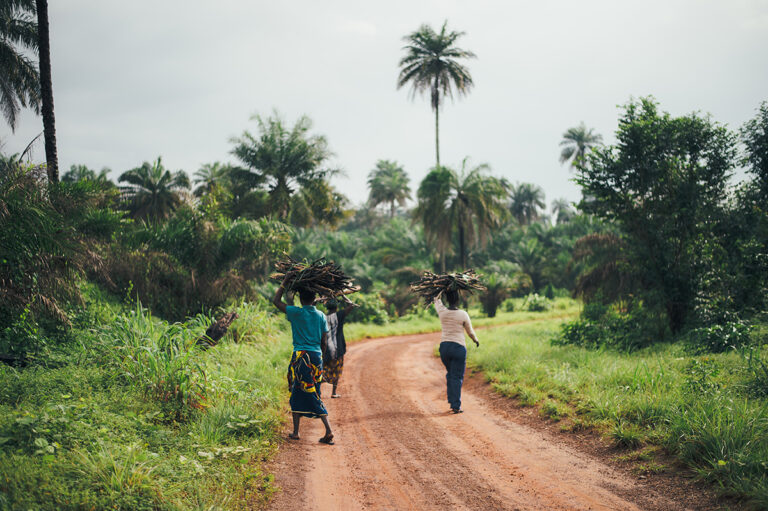Acting on climate and poverty: if we fail on one, we fail on the other

Women collecting firewood in Sierra Leone. Photo: Annie Spratt, Unsplash
Download
In this policy insight, the authors explain why delayed action on climate change will be profoundly damaging for poverty reduction efforts around the world. Contrastingly, rising to the climate and poverty challenges in tandem can generate great gains for people and the environment across continents and create new paths for sustainable development and poverty reduction. The paper also addresses how the international community can work together to create this new sustainable, resilient, inclusive approach to development and poverty reduction.
Main messages
- Managing climate change and overcoming poverty are the defining challenges of this century. They are deeply interwoven: if we fail on one, we fail on the other.
- Poorer people are more vulnerable to extreme events, disruptions and shocks such as health hazards, epidemics, natural disasters, conflicts and economic downturns, and they have fewer resources to cope and recover.
- Climate change amplifies the scale, frequency and intensity of these events and shocks, driving people into poverty and limiting their ability to escape.
- Poorer people are also more vulnerable to the ‘slow-onset’ effects of climate change, including sea-level rise, salinisation, land and forest degradation, glacial retreat and desertification.
- In all regions, climate change, both extreme and slow-onset events, is increasingly driving the displacement of people, and it is a contributing factor to violent conflict.
- Climate change threatens economic sectors and activities on which women and girls in particular rely for their livelihoods. Compared with men, they face higher food security risks, disproportionate health impacts and risks of violence, disruption to their education and reduced work opportunities as a result of climate change.
- It is increasingly clear that action on climate change, structured well, provides considerable benefits and opportunities in the fight against poverty. Many investments for development, mitigation and adaptation are mutually supportive.
- Poorly designed climate policy can hurt development and worsen the livelihoods of poor people, and in some environments, poverty itself can lead to activities that accelerate climate change.
- Misconceptions that climate action inevitably requires a trade-off with economic development have held back countries from pursuing policies to bring down emissions.
- Ambitious action on climate change with a focus on reducing poverty and inequalities can deliver the fundamental economic investment, innovation and impacts required to unlock strong, inclusive, resilient and sustainable development.
- Success in accelerating the shift towards a low-carbon economy will be largely dependent on developed countries stepping up their own domestic action, fostering international climate action and enabling developing countries through finance and technology.

